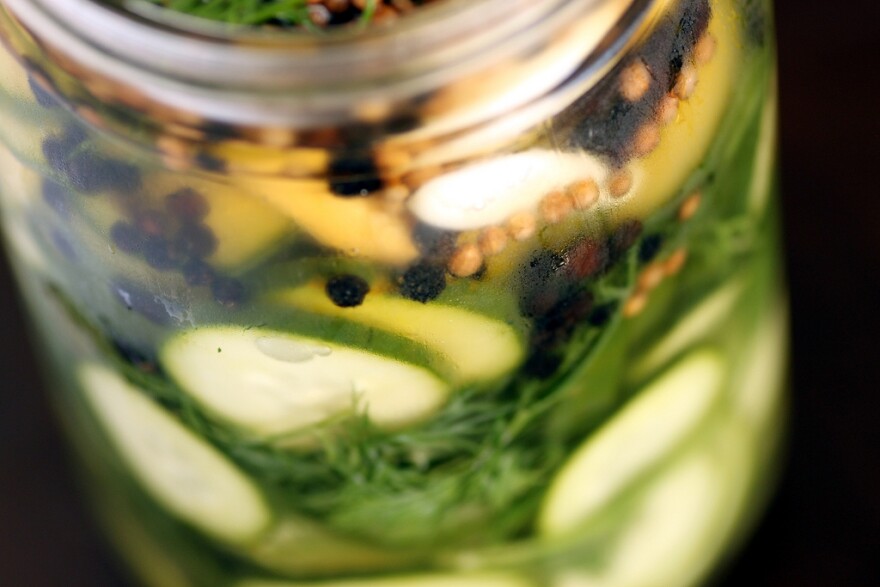People laughed out loud when I told them my New Year’s resolution: “I resolve to eat more pickles.” That was one year ago, at the start of 2017.
Well, no one is laughing now – because pickles are hot. (They’re also cold, quick, sweet, sour, half-sour, kosher, deep fried, and more.)
The word pickle is both a noun and a verb. Most often the noun refers to a cucumber preserved or fermented in vinegar or a salted-water brine. To pickle something is the act of preparing a vegetable, fruit, or other food by those methods. It’s a practice that goes back thousands of years.
Multiple sources we consulted confirm that pickles are mentioned several times in the Bible. According to a story by food writer Tori Avey on pbs.org, Cleopatra ate pickles as part of her beauty regimen. In fact, the ability to pickle and preserve a variety of foods helped humankind to flourish at home – and on journeys of exploration where finding sustenance was uncertain.
Pickled and fermented foods appear in traditional and folk remedies. The same salty-and-sweet pickle juice that may ease the nausea of pregnancy (which could explain the pickle craving, with or without ice cream) can also help a hangover. Ancient cultures understood the health benefits of the micronutrients produced by the fermentation process. Until recently, “modern medicine” was skeptical, and sometimes downright dismissive. But now the National Institutes of Health and other researchers are investigating the helpful effects these substances can have on everything from gut health to mental health.
That’s a good thing, but let’s not forget that even if pickled foods in their endless variations are good for you, they’re also just plain good to eat.
James Beard-award winning author Adrian Miller, known as the Soul Food Scholar, remembers, “My most memorable pickle experience was having a Kool-Aid pickle at Delta Fast Food in Cleveland, Mississippi. The bright red color and sweet-and-sour combination was something my eyes . . . and stomach would never forget.”
No pickle truly stands alone, especially now that dried, fermented, salted, and other forms of food preservation are going mainstream. For some people, making pickles is just one part of a larger lifestyle.
Brooke Jackson-Glidden writes about the business of food and drink for the Statesman Journal in Salem, Oregon. When I messaged a large group of culinary colleagues in mid-December and asked them to share their own food resolutions, she replied right away – not even knowing about my proclivity for pickles.
“I’m becoming a Master Preserver! I want to learn to ferment, pickle, can, jam, kimchi and kraut everything I can this year. I made my general resolution to become ‘truly self sufficient,’ which means I’m also taking a first aid class, a gardening class, a foraging class and a (getting used to this one) bow-and-arrow hunting class. Very Oregon backwoods, what can I say?”
Closer to home, Charlottean Carol Sawyer uses a recipe she obtained from a neighbor about a dozen years ago. Working with a friend, the pair annually starts with about 50 pounds of cucumbers to yield 60 or more pints of sweet and tangy pickles prepared with mustard seeds and celery seeds. These are a world apart from the mundane, grocery store variety.
Longtime jam-, sauce-, and pickle-maker Renee Joslyn recommends the Ball brand books for do-it-yourselfers. Making pickles requires following some rules for food safety; check online for free digital downloads, too.
Perhaps you’ll start 2018 with a resolution to learn Feng Shui by February, run a marathon by March, or climb Mt. Kilimanjaro by June. Those are all worthy goals, of course, but if you want to keep it simple – and guarantee you’ll achieve success – make yourself a promise to partake of more pickles.
Happy new year!




